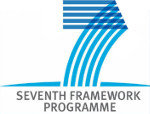Humans display a reduced set of consistent behavioral phenotypes in dyadic games
Poncela-Casasnovas, Julia ; Gutiérrez-Roig, Mario ; Gracia Lázaro, Carlos ; Vicens, Julian ; Gómez-Gardeñes, Jesús (Universidad de Zaragoza) ; Perelló, Josep ; Moreno, Yamir (Universidad de Zaragoza) ; Duch, Jordi ; Sánchez, Angel
Resumen: Socially relevant situations that involve strategic interactions are widespread among animals and humans alike. To
study these situations, theoretical and experimental research has adopted a game theoretical perspective, generating
valuable insights about human behavior. However, most of the results reported so far have been obtained from a
population perspective and considered one specific conflicting situation at a time. This makes it difficult to extract
conclusions about the consistency of individuals’ behavior when facing different situations and to define a comprehensive
classification of the strategies underlying the observed behaviors. We present the results of a lab-in-thefield
experiment in which subjects face four different dyadic games, with the aim of establishing general behavioral
rules dictating individuals’ actions. By analyzing our datawith an unsupervised clustering algorithm, we find that all
the subjects conform, with a large degree of consistency, to a limited number of behavioral phenotypes (envious,
optimist, pessimist, and trustful), with only a small fraction of undefined subjects. We also discuss the possible connections
to existing interpretations based on a priori theoretical approaches. Our findings provide a relevant
contribution to the experimental and theoretical efforts toward the identification of basic behavioral phenotypes
in a wider set of contexts without aprioristic assumptions regarding the rules or strategies behind actions. From
this perspective, our work contributes to a fact-based approach to the study of human behavior in strategic situations,
which could be applied to simulating societies, policy-making scenario building, and even a variety of
business applications.
Idioma: Inglés
DOI: 10.1126/sciadv.1600451
Año: 2016
Publicado en: Science 2, 8 (2016), e1600451
ISSN: 0036-8075
Factor impacto JCR: 37.205 (2016)
Categ. JCR: MULTIDISCIPLINARY SCIENCES rank: 2 / 63 = 0.032 (2016) - Q1 - T1
Factor impacto SCIMAGO: 13.744 - History and Philosophy of Science (Q1) - Multidisciplinary (Q1) - Medicine (miscellaneous) (Q1)
Financiación: info:eu-repo/grantAgreement/ES/DGA/FENOL-GROUP
Financiación: info:eu-repo/grantAgreement/EC/FP7/317532/EU/Foundational Research on MULTIlevel comPLEX networks and systems/MULTIPLEX
Financiación: info:eu-repo/grantAgreement/ES/MINECO/FIS2011-25167
Financiación: info:eu-repo/grantAgreement/ES/MINECO/FIS2012-38266-C02-01
Tipo y forma: Artículo (Versión definitiva)
Área (Departamento): Área Física Teórica (Dpto. Física Teórica)
Área (Departamento): Área Física Materia Condensada (Dpto. Física Materia Condensa.)
 Debe reconocer adecuadamente la autoría, proporcionar un enlace a la licencia e indicar si se han realizado cambios. Puede hacerlo de cualquier manera razonable, pero no de una manera que sugiera que tiene el apoyo del licenciador o lo recibe por el uso que hace. No puede utilizar el material para una finalidad comercial.
Debe reconocer adecuadamente la autoría, proporcionar un enlace a la licencia e indicar si se han realizado cambios. Puede hacerlo de cualquier manera razonable, pero no de una manera que sugiera que tiene el apoyo del licenciador o lo recibe por el uso que hace. No puede utilizar el material para una finalidad comercial.
Exportado de SIDERAL (2025-06-19-08:41:24)
Visitas y descargas
study these situations, theoretical and experimental research has adopted a game theoretical perspective, generating
valuable insights about human behavior. However, most of the results reported so far have been obtained from a
population perspective and considered one specific conflicting situation at a time. This makes it difficult to extract
conclusions about the consistency of individuals’ behavior when facing different situations and to define a comprehensive
classification of the strategies underlying the observed behaviors. We present the results of a lab-in-thefield
experiment in which subjects face four different dyadic games, with the aim of establishing general behavioral
rules dictating individuals’ actions. By analyzing our datawith an unsupervised clustering algorithm, we find that all
the subjects conform, with a large degree of consistency, to a limited number of behavioral phenotypes (envious,
optimist, pessimist, and trustful), with only a small fraction of undefined subjects. We also discuss the possible connections
to existing interpretations based on a priori theoretical approaches. Our findings provide a relevant
contribution to the experimental and theoretical efforts toward the identification of basic behavioral phenotypes
in a wider set of contexts without aprioristic assumptions regarding the rules or strategies behind actions. From
this perspective, our work contributes to a fact-based approach to the study of human behavior in strategic situations,
which could be applied to simulating societies, policy-making scenario building, and even a variety of
business applications.
Idioma: Inglés
DOI: 10.1126/sciadv.1600451
Año: 2016
Publicado en: Science 2, 8 (2016), e1600451
ISSN: 0036-8075
Factor impacto JCR: 37.205 (2016)
Categ. JCR: MULTIDISCIPLINARY SCIENCES rank: 2 / 63 = 0.032 (2016) - Q1 - T1
Factor impacto SCIMAGO: 13.744 - History and Philosophy of Science (Q1) - Multidisciplinary (Q1) - Medicine (miscellaneous) (Q1)
Financiación: info:eu-repo/grantAgreement/ES/DGA/FENOL-GROUP
Financiación: info:eu-repo/grantAgreement/EC/FP7/317532/EU/Foundational Research on MULTIlevel comPLEX networks and systems/MULTIPLEX
Financiación: info:eu-repo/grantAgreement/ES/MINECO/FIS2011-25167
Financiación: info:eu-repo/grantAgreement/ES/MINECO/FIS2012-38266-C02-01
Tipo y forma: Artículo (Versión definitiva)
Área (Departamento): Área Física Teórica (Dpto. Física Teórica)
Área (Departamento): Área Física Materia Condensada (Dpto. Física Materia Condensa.)
Exportado de SIDERAL (2025-06-19-08:41:24)
Enlace permanente:
Visitas y descargas
Este artículo se encuentra en las siguientes colecciones:
Artículos > Artículos por área > Física de la Materia Condensada
Artículos > Artículos por área > Física Teórica
Registro creado el 2017-06-14, última modificación el 2025-06-19
